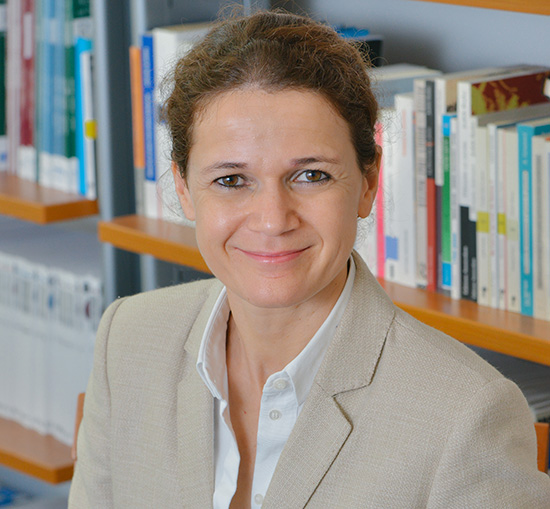Attracting a wide array of talented undergraduates
Each year, 1200 undergraduate students from every background receive a rigorous, multi-disciplinary undergraduate education that encourages independence and open-mindedness. As secondary school students begin the process of deciding on their post-baccalauréat career, Université Paris-Dauphine President Isabelle Huault tells us about the unique value of PSL Bachelor’s degrees.

The Bachelor’s degree is currently the focus of attention in France’s higher education system: the Plan étudiants (Student Plan) unveiled by the French government in late 2017 is designed to transform the undergraduate experience and help all students succeed.
The Bachelor’s degrees offered by PSL provide thinking skills that will guide students through the decisions they’ll need to make and will help each student become more independent.
PSL admits more than 1200 students every year to its Bachelor’s programs (Paris-Dauphine and the CPES Multidisciplinary Preparatory Class), all hoping to gain a rigorous university education combined with innovative instruction. As an alternative to the traditional options of preparatory curricula or a more “traditional” Bachelor’s degree, these selective academic paths are firmly multidisciplinary; they’re designed to produce curious critical thinkers poised to become professionals (researchers, experts, managers, entrepreneurs) and open-minded citizens, mindful of the environmental, social and ethical consequences of their actions. Intended to give students a general foundation before they gradually move toward specialization, the Bachelor’s degrees offered by PSL provide thinking skills that will guide students through the decisions they’ll need to make and will help each student become more independent.
PSL actively strives to diversify its student population and has allocated the resources to attract talented students in every curriculum without compromising on instructional content.
Ten percent of those admitted to the Paris-Dauphine L1 degree program are Equal Opportunity students, while scholarship students make up 50% of the CPES population.
The Equal Opportunity program at Paris-Dauphine consists of a close partnership with more than 50 secondary schools in regions of priority concern. The goal is to open the university’s doors to students from low- and moderate-income households, boost their self-confidence and prepare them for a demanding undergraduate experience. Among the unique aspects of the program are the booster classes available during the last two years of secondary school, funded by the Dauphine Foundation, and the guidance services available to secondary school students. Enrollees receive various forms of support during the program, including three mentors for each student: a research professor, a fellow student and a Paris-Dauphine graduate now leading a professional career. All three are volunteers who give their time to assist and counsel students. The CPES program includes workshops on methodology as well as instruction designed to promote cultural awareness. The initial results to date are encouraging: ten percent of those admitted to the Paris-Dauphine L1 degree program are Equal Opportunity students, while scholarship students make up 50% of the CPES population.
In addition, Paris-Dauphine’s Talents program gives artists, high-level athletes and entrepreneurs an opportunity to fulfill their ambitions while completing a Bachelor’s degree in four years. Those students can combine exceptionally high-level studies with their personal passion, based on a customized academic path that’s designed for a longer period of time.
Within PSL we hope to go even further, by pursuing a proactive commitment to a diverse student body, by encouraging dialogue among the various disciplines, by offering new instructional methods and by promoting both international experience and greater student participation in community life.
We want PSL’s student body to reflect a pluralistic world, so that social, regional and cultural diversity can be a driving force for creativity, responsibility and openness to the world.
President, Université Paris-Dauphine
